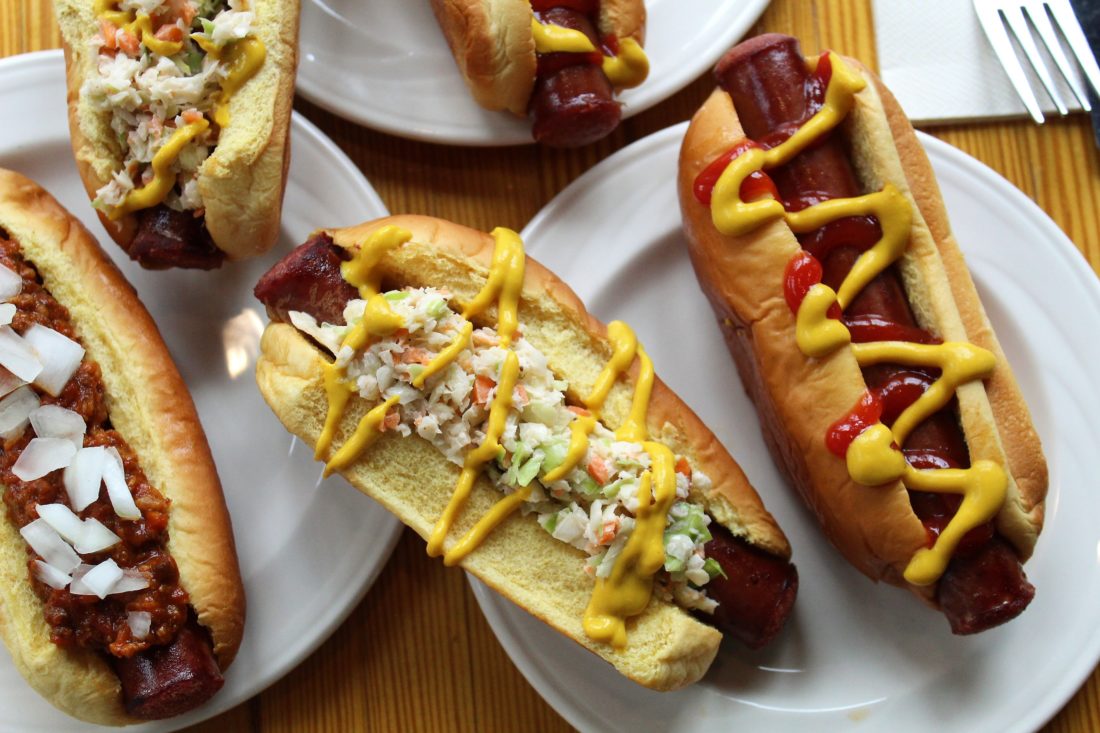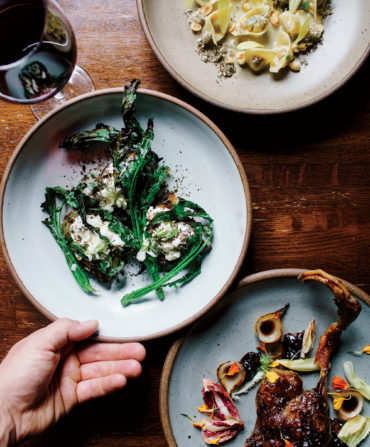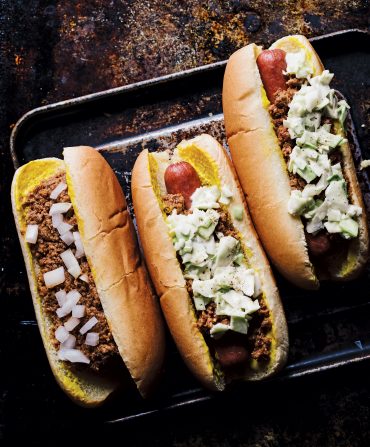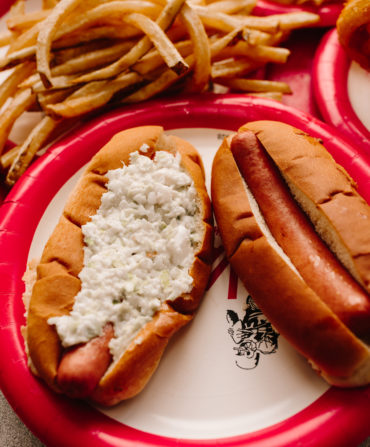Casey McKissick knows that the making of commodity hot dogs can be a mystery. As the founder of Foothills Butcher Bar in Black Mountain, North Carolina, he’s spent years perfecting his locally-sourced, made-in-house recipe to clear up some of those myths.
“If you’re gonna eat a hot dog, make it a good one,” McKissick says. “People come eat ours and say it reminds them of being ten years old at the beach, dripping chili on their laps.”
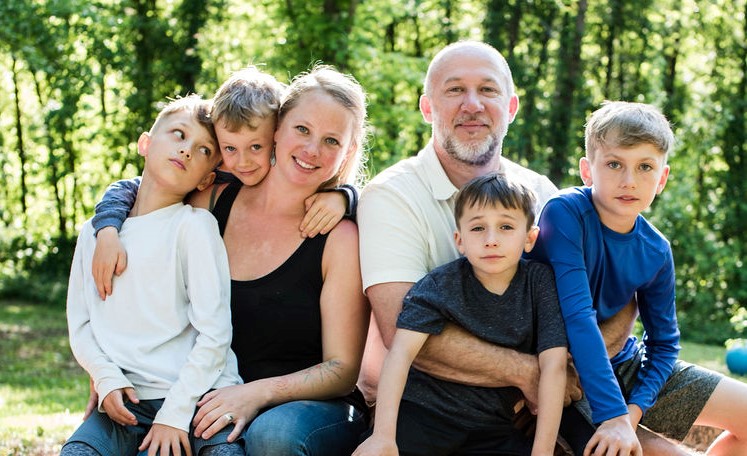
Photo: Melissa Presti
McKissick with his family. From left: Arlo Prior, Waylon Prior, Amanda McKissick, Casey McKissick, Cash McKissick, and Tucker McKissick.
McKissick grew up in the rural piedmont region of North Carolina, where fried chicken Sunday dinners helped spur his interest in agriculture and butchery. He got his start in the business as part of a farmers co-op called Foothills Family Farms, founded in 2002, that helped small farms sell their products to restaurants in the Asheville area. By the fall of 2013, McKissick had opened his first butcher shop in Black Mountain, expanding over the years to his current empire—a food truck, subscription-box program available for local customers, and two full-service butcher bar restaurants in Black Mountain and West Asheville. Both have meat-centric menus—housemade charcuterie boards, burgers, and steaks—but the “Hotdog Brothers” dogs are one of his top sellers. They’re available naked or “Carolina-style,” topped with pool hall chili, finely diced onions, a slathering of coleslaw, and yellow mustard.
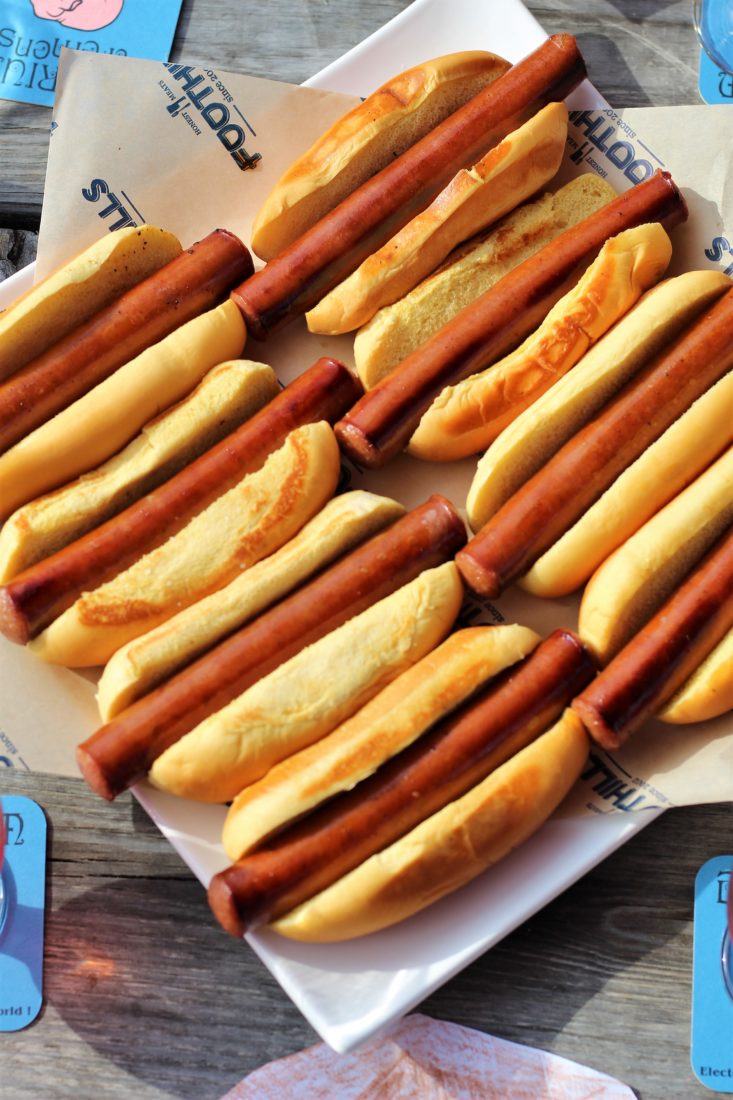
Photo: Catherine Campbell
A tray of naked dogs.
Foothills practices the whole-animal philosophy of butchering. “Most chefs want pork belly or tenderloin, a bunch of one thing. That doesn’t work well for the farmer who has the whole pig to sell,” McKissick says. By taking in around eight whole hogs and cows a week, McKissick relieves farmers of trying to sell cuts in lower demand. In addition to supplying dry-aged steaks, burgers, deli meats, bologna, and bacon, Foothills uses a variety of cuts to churn out between 300 and 400 pounds of hot dogs each week. They’re the true heroes of both butcher bar restaurants, as well as the Foothills Food Truck near downtown Asheville, a farm-to-table model almost completely sourced from below the Mason Dixon line.
“Part of the art and craft of whole-animal butchering is how do you make valuable, delicious things out of the unwanted bits,” McKissick says.
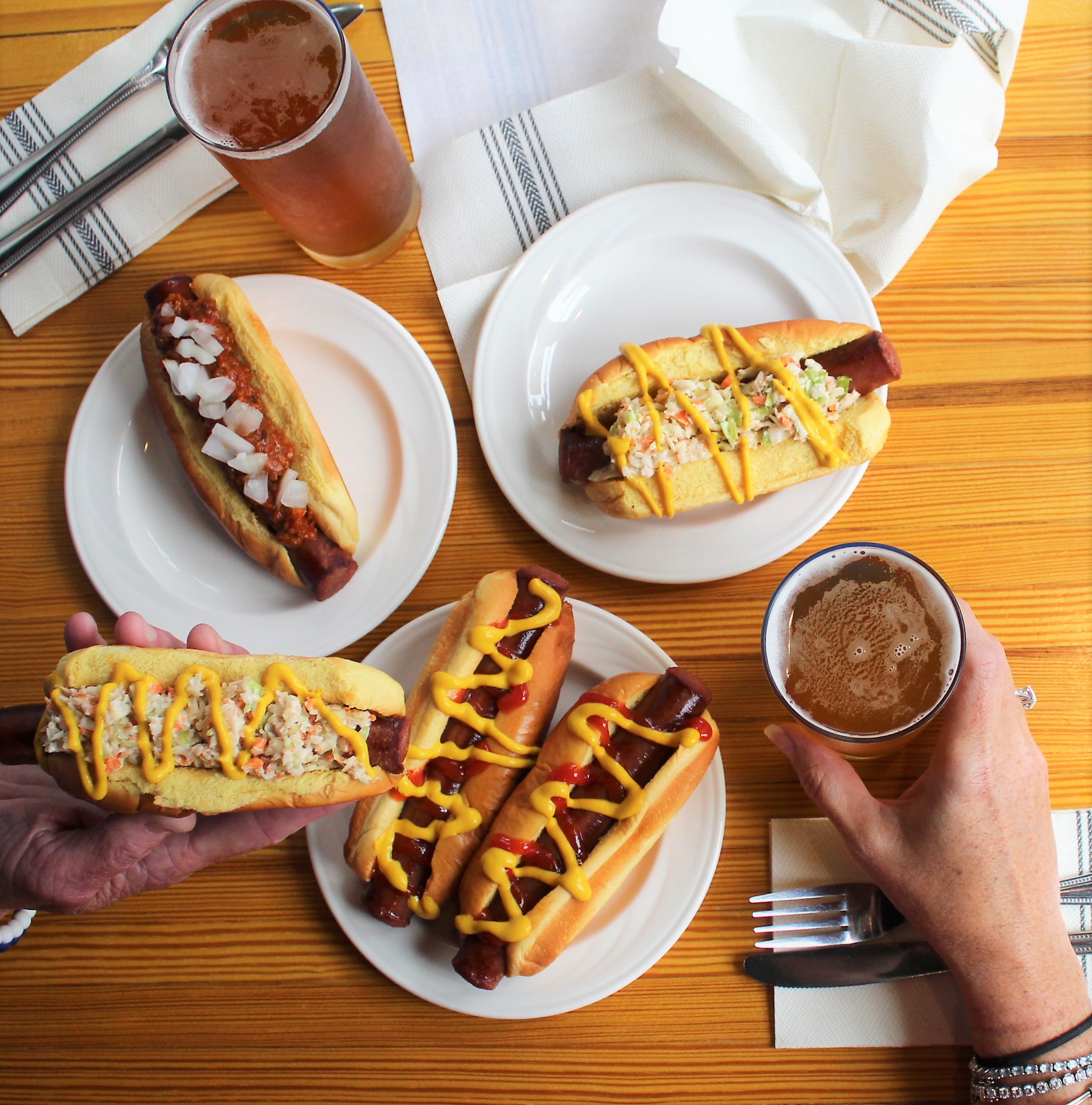
Catherine Campbell
As long as people keep ordering his hot dogs, McKissick plans on keeping the grill hot, the mustard ready, and the business within the family. He and his wife Amanda already plan to gift hot dog carts to their four sons on their sixteenth birthdays.
“The boys grew up thinking that they invented hot dogs,” McKissick says. “That’s why we call them Hotdog brothers.”


